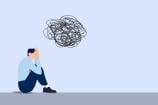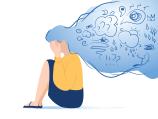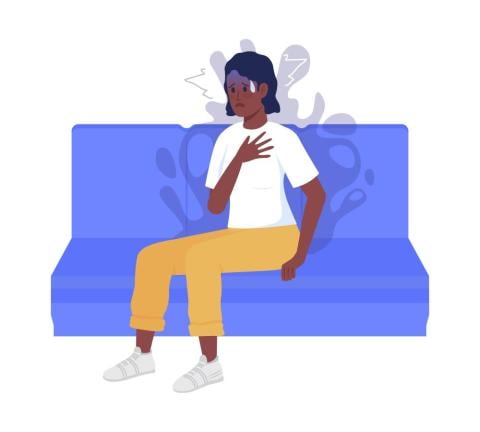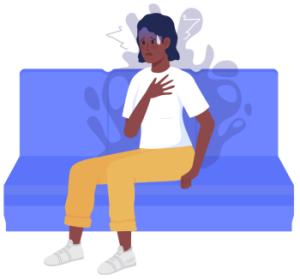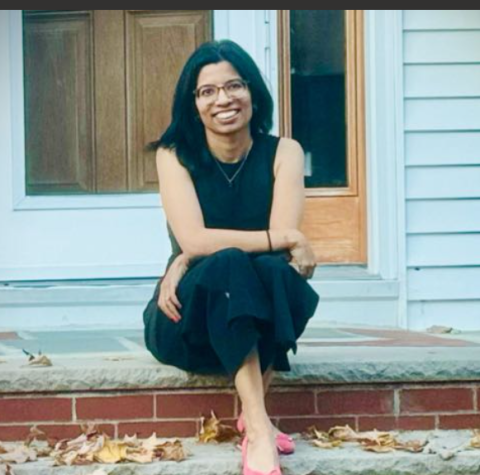My Obsessive Comedy Disorder: How Stand Up Helps My OCD
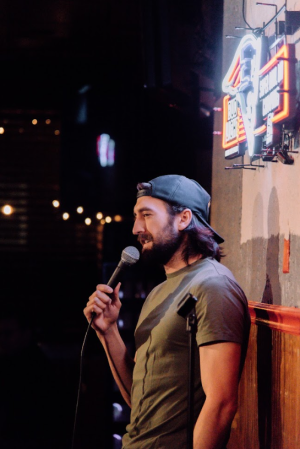
You know what I love about people with obsessive compulsive disorder and the OCD support community? They are always there to help you out – compulsively!
My aunt, who has OCD similar to mine and is a member of IOCDF, is obsessive about sending me information and resources. In fact, that’s how I found out about ADAA. And while I haven’t written a joke about the Anxiety and Depression Association of America (yet), there is still time...
Mental health disorders like anxiety, depression, OCD, PTSD, bipolar, etc., aren’t funny. Or are they? As a comedian I find humor in my disorder. I write and perform jokes that you might think you shouldn’t laugh at, but isn’t laughter the best medicine?
No, of course not. Therapy, science, professional care, medical attention, and sometimes medicine itself is the best medicine. But laughter helps in other ways.
Before I start the part of my stand-up routine where I talk about my OCD, anxiety, alarming intrusive thoughts, and other struggles, I warn the audience: “I’m going to get into some very dark jokes. I don’t expect you to laugh, but I am not going to sugar coat it because people who have what I have often wait, on average, 10 years before seeking treatment because they don’t know what it is.”
That’s my disclaimer. After that, often to my delight, there is laughter. Sometimes it’s the awkward, sheepish, “I know I shouldn’t be laughing at this” kind, but it’s there in all its dark, funny, messy way.
A big lesson I learned in therapy and through my comedy is you have to let things get messy sometimes. My intent is to never do any harm. It is to be honest and raise awareness - even if that means exposing some negative, uncomfortable stuff. And I definitely share some frightening, dark, horrible stuff with the audience. So how is that even funny?
One of my jokes is an exposure assignment from my therapist as part of my treatment. For OCD, exposure therapy is the gold standard. I tell the audience: “My therapist literally wants me to expose myself to you… He hates when I phrase it like that.” Of course I’m not exposing myself physically, but mentally. I continue, “I know I’m making it sound really bad - and it is - but we’ll ease into it.” And from there I ease into it with them with some laughs along the way.
Everyone gets intrusive thoughts, I tell them. But with me it’s like my brain can’t control them. Some are really mortifying and then some just don’t make any sense. For about a month now my brain has been saying “butter crest sandwiches” on a loop.
Here’s the thing: I don’t know what that is. I don’t know where it came from, what it means, or why I’m thinking about it compulsively. And that’s often the way with my OCD. Whether harm OCD, orientation OCD, identity OCD, or pedophilia OCD – all of which I have experienced in obsessive loops in my head – I have to remember they are just thoughts.
We have to be able to share our crazy thoughts to get the help we need. We shouldn’t have to go around thinking we are horrible people. We should know there are other people out there facing the same challenges and those challenges are treatable. That’s why I share mine on a stage and hope people find humor in the way I share them.
I wasn’t fully honest at first about my OCD and that prevented me from getting the right treatment for almost 13 years. When I was in the military, I saw a behavioral scientist. I was afraid to tell her everything that was going on in my brain, and so I was diagnosed with anxiety. It wasn’t until I left the military that I was finally diagnosed with OCD. And I thought, “people have to know about this.”
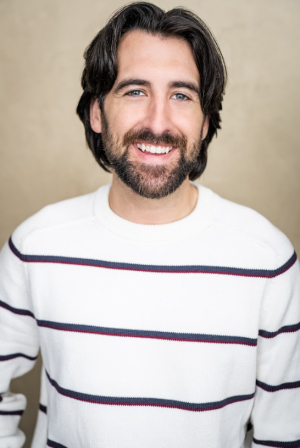
I’ve come to learn OCD isn’t about having the thoughts, or the content of the thoughts, but about uncertainty. I have a hard time dealing with it. Good thing I went into a certain, solid, predictable field like comedy and perform in front of people where I haven’t got a clue how they are going to react. Now if that isn’t exposure therapy, I don’t know what is.
My hour-long show (Obsessive Comedy Disorder - @kevinturnerhaha) has been well received. More importantly, there has been someone who comes up to me after every show to say they have a family member struggling with what I described, or they identify with it themselves. To me, that is worth every joke and reminds me that comedy can help people talk about the hard stuff and minimize the stigma around disorders like OCD.
And like comedy, organizations like IOCDF and ADAA are accessible and really do help to make you feel less alone. I was so afraid to approach the healing I needed until I realized that someone else had experienced the same thing. Even if my aunt overdoes it sometimes. But she helped me find ADAA where the resources, tools, and personal stories remind me that there is a path forward. We’re on this road to understanding, coping, treatment, and laughs together.
Now I have to go find out what the hell a butter crest sandwich is…
Share Your Story and Voice and Help #breakthestigma Around Mental Health
- Support ADAA's Mission - Every Gift Makes an Impact
- Join an ADAA Online Peer to Peer Support Community
- ADAA Find Your Therapist
